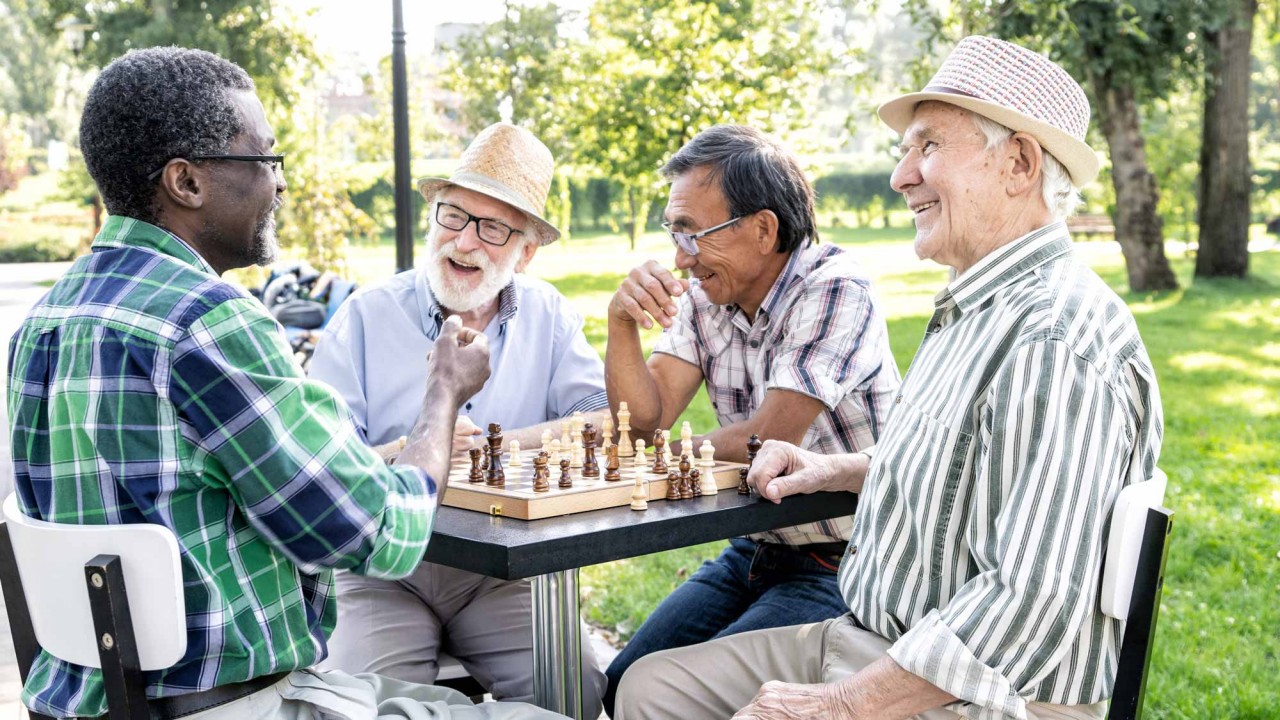Find connections in your community that can offer support and encouragement

Do you desire a sense of belonging — a community you can go to? It’s a part of being human. But this year, 1 in 3 adults age 50–80 (34%) reported feeling isolated from others in the past year. Community building can bring positive change.
The benefits of community connections
A community can bring together people of all ages, backgrounds and cultures. These are the people you can learn from and connect with in a meaningful way. The community that’s right for you will bring authenticity and acceptance, a space where you can feel safe and grow. Once you develop strong connections, a good group of people can offer support, advice and encouragement.
Developing friendships and a solid sense of community can help you foster a feeling of belonging and purpose. In fact, a strong social circle can even help combat health issues, both physical and mental.
According to a 2021 Penn State study, social interactions can help increase cognitive function in older adults. Well-connected individuals also report lessened anxiety, lower blood pressure and overall improved lifestyle habits.
Ways to get involved
There are tons of ways to connect with others. Here are just a few.
Tend to community gardens
Local gardening provides communities with fresh, healthy food, herbs, flowers and other plants. It can bring people together to bond over a mutual love of nature, cooking and improving their neighborhood. A 2021 study published by the National Library of Medicine found that community gardening encouraged healthy aging and had a positive effect on the physical and mental well-being of its participants. Frequent gardeners noted higher social support and quality of life.
Find volunteer opportunities
There are likely a number of volunteer events in your community. Maybe the local food shelter needs servers. Or you could read books to children at the library. Even individuals with limited mobility can lend a hand. Not only does it support those being assisted, but it also benefits the volunteers. You can meet new people and increase your support network of people who have similar values. And research has long shown the linkages between volunteering and benefits to physical and mental health.
Offer free lessons
Do you have a particular skill that you could share with others in your community? Perhaps you’re a talented piano player. Or you’re CPR certified. Maybe you used to play a sport that you’re still passionate about. Offer to share those talents through music lessons, tutoring or other classes. Volunteer to coach a local little league team. There are often also opportunities to help others do their taxes or learn how to register to vote.
Sign up for recreational programs and activities
Community rec centers offer a variety of events and activities for people of all ages. Some, including pickleball, swimming, golf or racquetball, can encourage physical activity. There are also more artistic options. Consider joining a local painting or drawing class. You can sign up for an activity you enjoy — or discover a new passion — while also meeting people who share similar interests.
Connect in “buy nothing” groups
The Buy Nothing Project offers sustainability and community building. Instead of buying, selling or bartering, you and your neighbors can “ask,” “give” or “borrow” items, all for free. Interested in joining the one in your neighborhood? Just search “buy nothing groups” online.
Social media, local organizations’ websites or more traditional means like neighborhood newspapers and ads can often direct you to community resources. If you don’t find an activity you enjoy right away, that’s okay! Keep trying new things until you find the one that best suits you and your interests.
Get social. Earn a reward.
Starting Sept. 10 in celebration of UnitedHealthcare’s “UCard Member Week,” and continuing through Dec. 31, UnitedHealthcare Medicare Advantage members can earn a reward just for connecting with others. Learn more at UCardMemberWeek.com.

